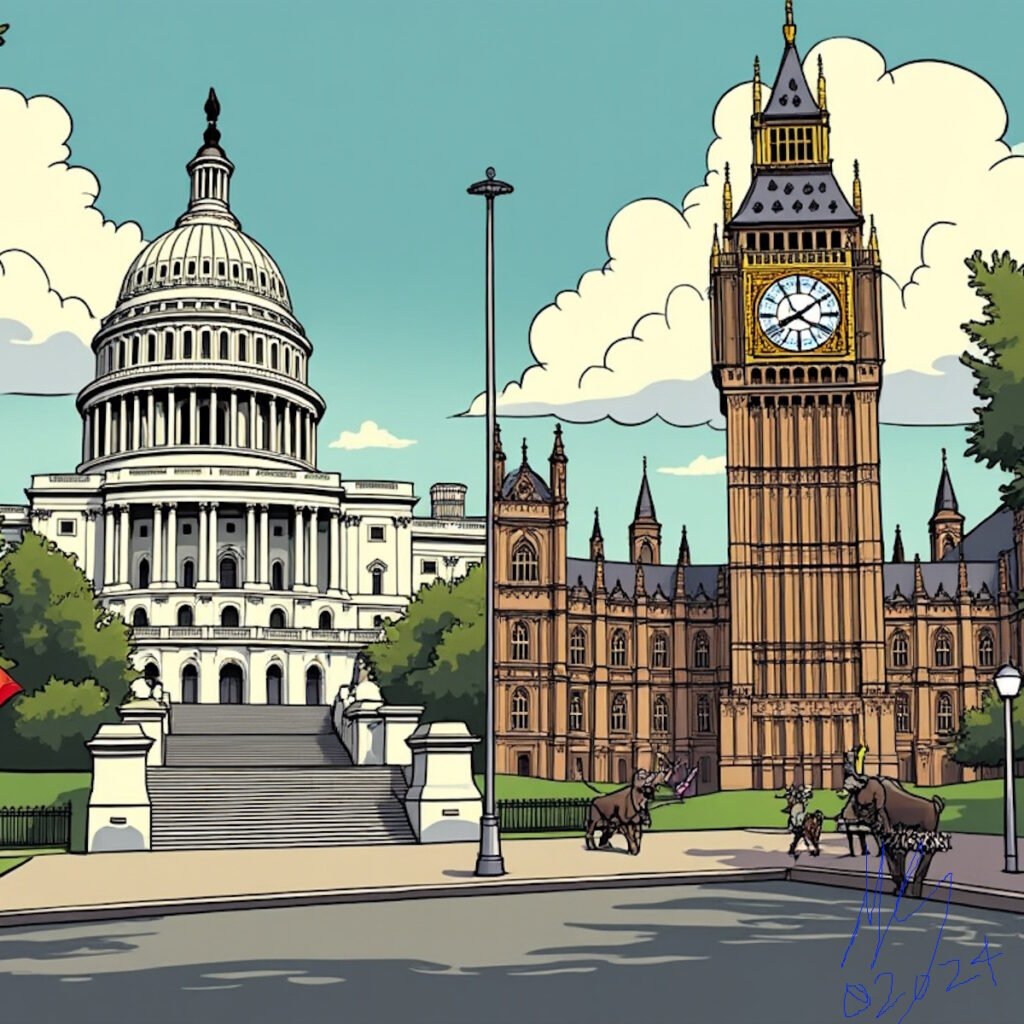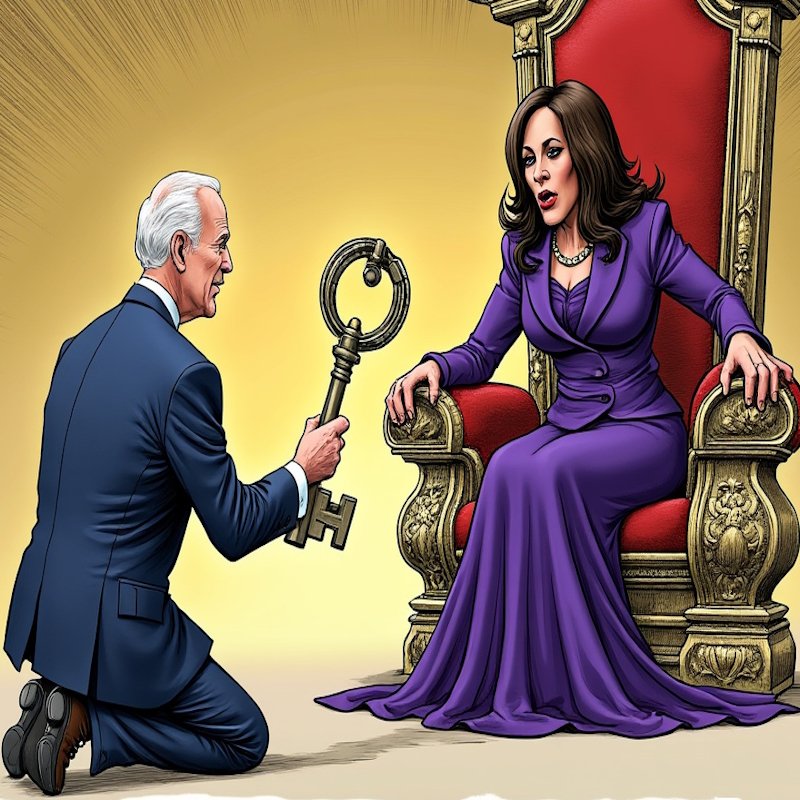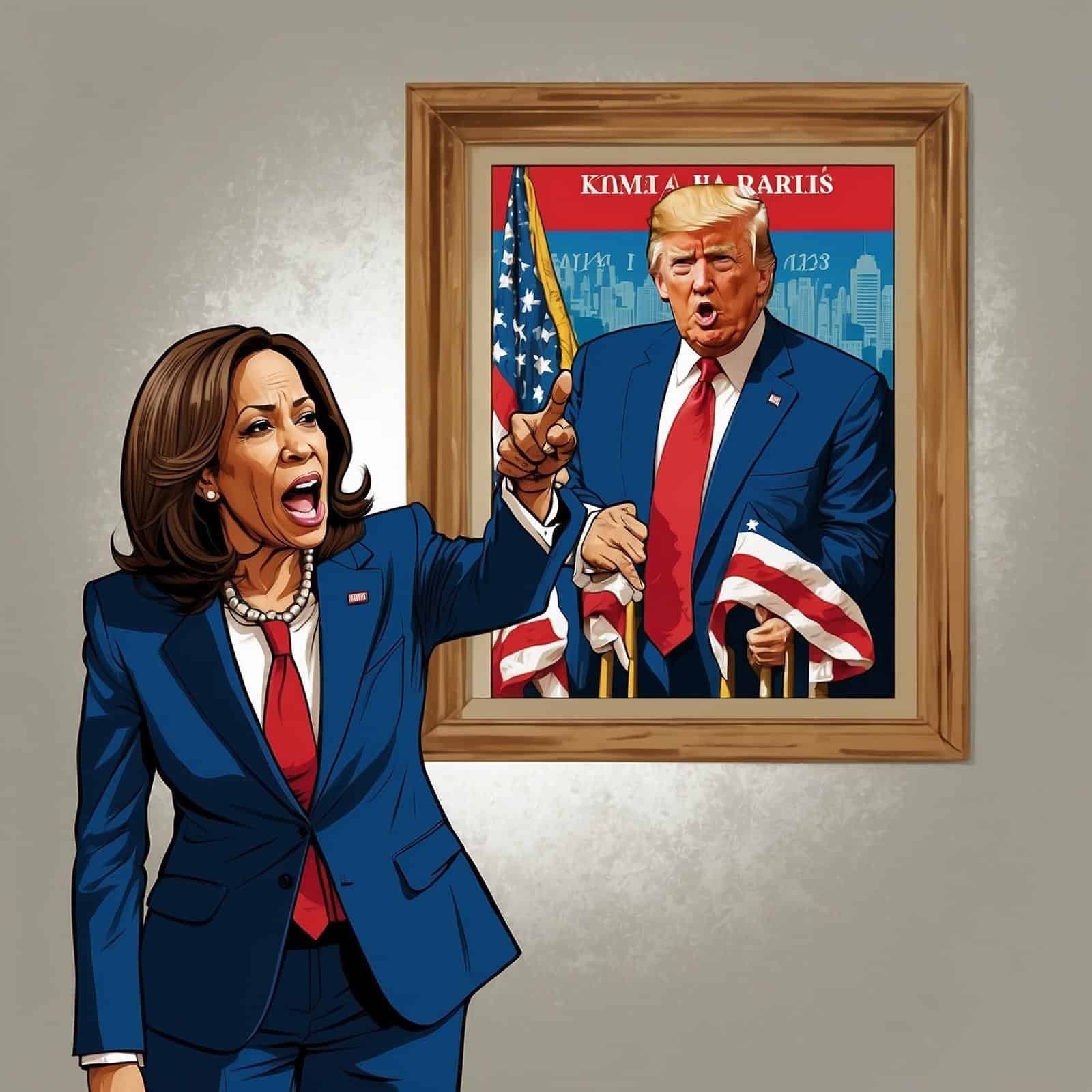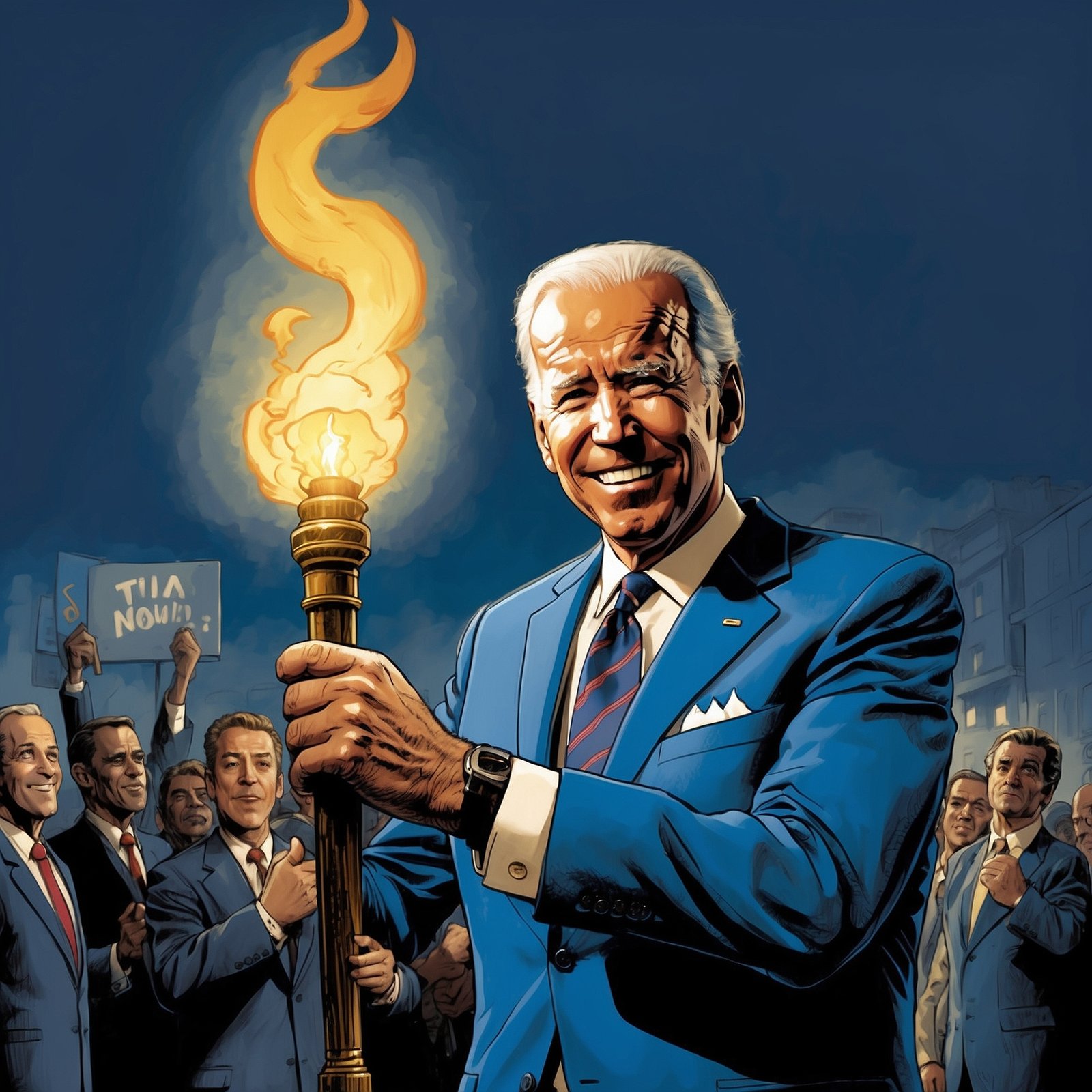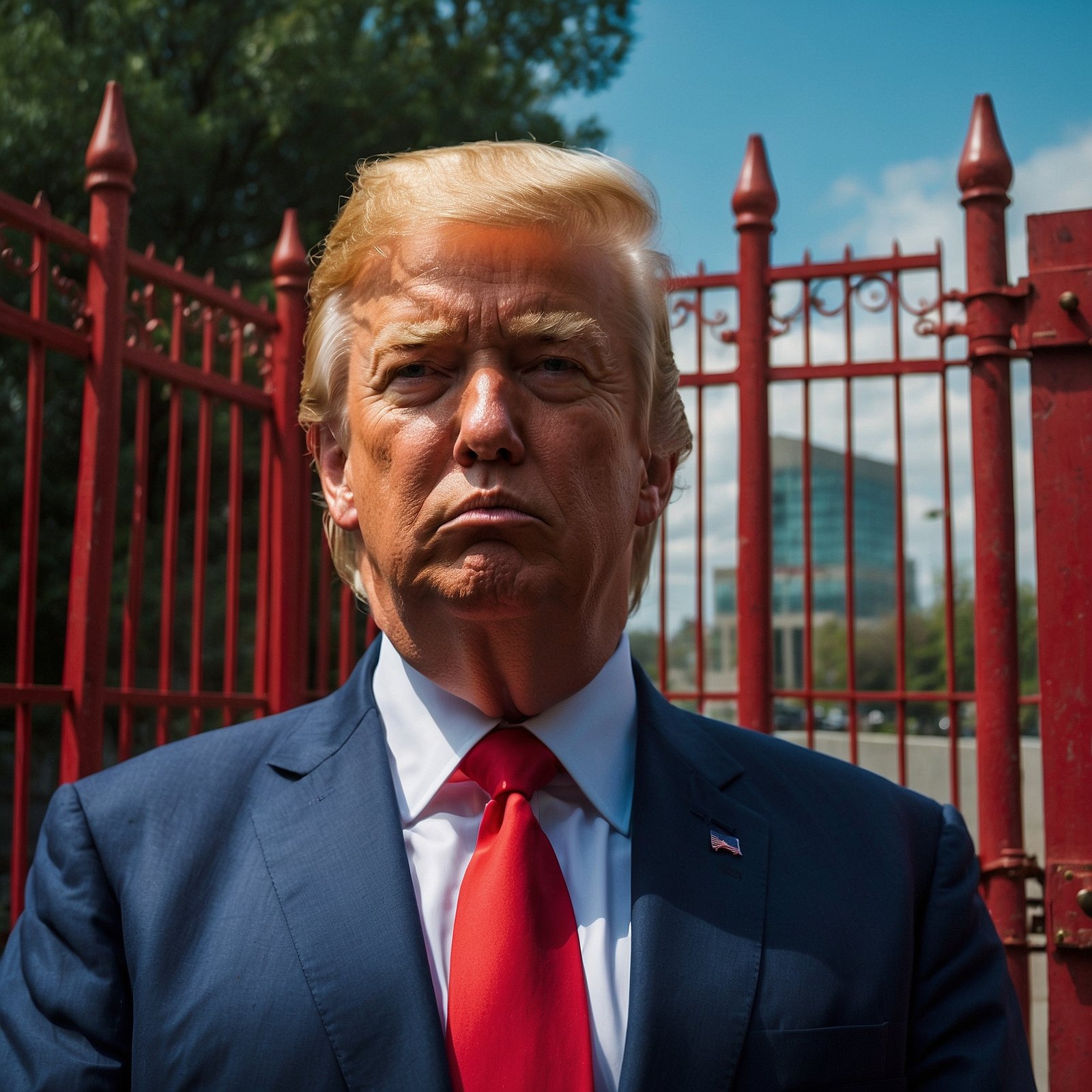A Comparative Analysis of the U.S. and U.K. Systems of Government
Introduction
The United States and the United Kingdom, two powerhouse democracies, have unique government systems that are as different as apple pie and fish and chips. The U.S. proudly stands tall with its presidential system, while the U.K. clings to its parliamentary traditions like a bulldog to a bone. Let’s dive into this political circus and see how these two heavyweight contenders stack up against each other.
The U.S. System of Government: Land of the Free, Home of the Brave… and Complicated
The U.S. system is like a well-oiled machine… that occasionally needs a good kick to get started. It’s all about keeping the government branches separate and making sure no one gets too big for their britches.
The Role of Political Conventions: The Greatest Show on Earth
Every four years, Republicans and Democrats throw themselves a party that would make P.T. Barnum proud. These national conventions are part pep rally, part policy wonk paradise, and all-American spectacle. It’s where delegates gather to pick their champion for the presidential race, and where the country gets to see just how many red, white, and blue balloons can fit in one room.
Fun Fact: Convention Shenanigans
Did you know that at the 1924 Democratic National Convention, it took a whopping 103 ballots to nominate a candidate? Talk about indecision! It’s like they were trying to order from a menu with too many options. Meanwhile, Republicans typically wrap things up faster than you can say “limited government.”
The Presidential Election Process: A Political Obstacle Course
Ah, the Electoral College – a system so complex it makes quantum physics look like child’s play. It’s not just about winning the popular vote; it’s about conquering the electoral map like a game of Risk. This system ensures that even the smallest states get a say, much to the chagrin of those who think New York and California should call all the shots.
The U.K. System of Government: Keep Calm and Carry On Governing
Across the pond, the Brits do things a bit differently. They’ve got a system that’s part tradition, part practicality, and all quirky charm.
The Parliamentary System: Where the Party Never Ends
In the U.K., the Prime Minister is like the captain of the winning team – they get to lead as long as their team (party) keeps scoring goals (votes). It’s a system where the executive and legislative branches are more tangled than a plate of spaghetti, but somehow, it works.
Comparison Chart: U.S. vs U.K. Leadership
| Aspect | United States | United Kingdom |
|---|---|---|
| Head of Government | President | Prime Minister |
| Term Length | 4 years (max 8) | No fixed term |
| Selection Process | Electoral College | Party Leadership |
| Relationship to Legislature | Separate | Part of Legislature |
General Elections: The British Version of Musical Chairs
U.K. elections are like a game of musical chairs, but with 650 seats and a lot more tea. Every five years (or sooner if someone calls “do-over”), the British public decides who gets to sit in the House of Commons. The party that snags the most chairs gets to form a government, and their leader becomes the Prime Minister. It’s democracy with a dash of musical theater.
Key Differences: Apples and Oranges… or Tea and Coffee?
Separation of Powers vs. Fusion of Powers: To Mix or Not to Mix?
The U.S. keeps its government branches as separate as a vegan at a barbecue. Meanwhile, the U.K. throws everything into one pot like a hearty stew. Both claim their way is best, but let’s be honest, they’re both a bit messy.
Election of Leaders: Battle Royale vs. Party Favorite
In the U.S., electing a president is like a nationwide reality TV show, complete with primaries, debates, and more drama than a soap opera. The U.K., on the other hand, picks its leader through what essentially amounts to an elaborate game of “party favorite.” It’s less flashy, but it gets the job done… most of the time.
Political Conventions vs. Party Leadership Contests: Glitz vs. Grit
U.S. conventions are the political equivalent of the Super Bowl halftime show – lots of pomp, circumstance, and funny hats. British leadership contests are more like a polite disagreement at a garden party. Both can get ugly, but one does it with more confetti.
Role of the Head of State: All-in-One vs. Divide and Conquer
The U.S. President is like a Swiss Army knife of government – head of state, head of government, commander-in-chief, and occasional TV star all rolled into one. The U.K. splits these duties between the Monarch (who waves and looks regal) and the Prime Minister (who actually runs things). It’s like having a mascot and a coach instead of a player-coach.
Conclusion: Two Nations, Divided by a Common Language… and Political Systems
At the end of the day, both the U.S. and U.K. systems have their strengths and quirks. The U.S. system is like a carefully balanced mobile – touch one part, and the whole thing wobbles. The U.K. system is more like a game of Jenga – it looks precarious, but somehow it holds together. Both have weathered centuries of political storms, proving that there’s more than one way to run a democracy. Whether you prefer your politics with a side of stars and stripes or a cup of Earl Grey, one thing’s for sure – it’s never boring.
Table of Contents
- A Comparative Analysis of the U.S. and U.K. Systems of Government
- Introduction
- The U.S. System of Government: Land of the Free, Home of the Brave… and Complicated
- The U.K. System of Government: Keep Calm and Carry On Governing
- Key Differences: Apples and Oranges… or Tea and Coffee?
- Conclusion: Two Nations, Divided by a Common Language… and Political Systems
